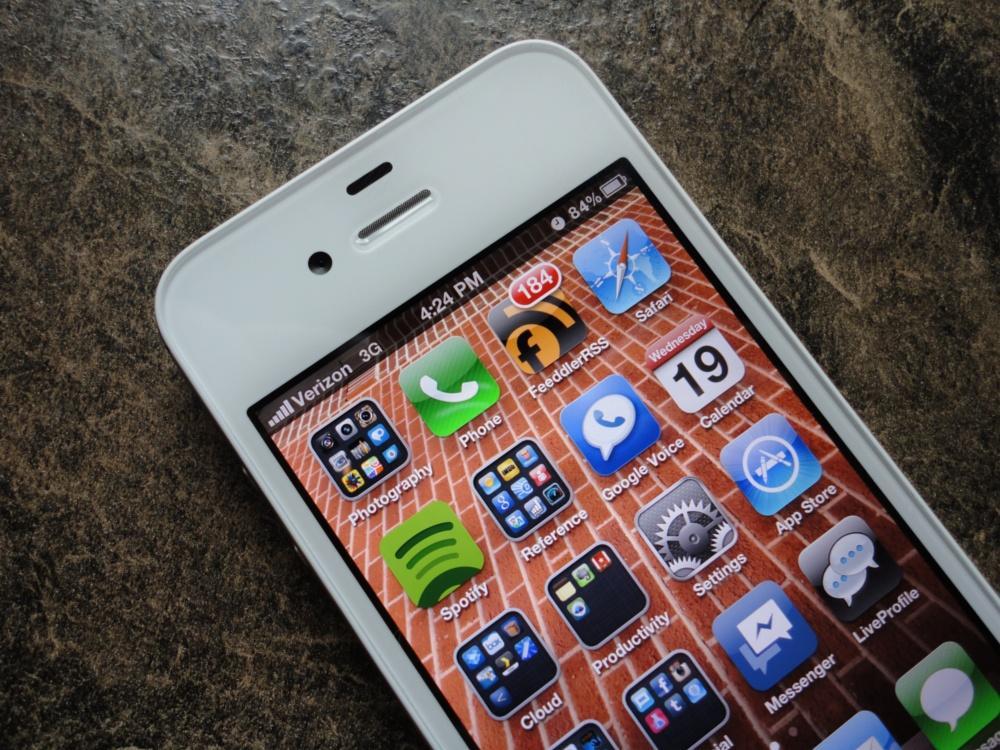
Owning a mobile device for the length of a contract, normally two agonizing years, is becoming an increasingly difficult thing to do. In a matter of weeks and months of a launch, a new phone can quickly become outdated or lose its luster in light of newer, bigger and better phones. Even rumors of phones several months away play a major part in the obsolescence of current and pending phones. For those with the never-ending desire to own the latest and greatest tech, staying loyal to the agreement you signed when you bought your phone is tough, to say the least.
And providers aren't making things any easier for consumers. When you buy a subsidized phone, you are signing an agreement. This agreement, depending on its length (usually anywhere from one to three years), drops the price of the phone significantly. To keep people from just buying a subsidized phone and cancelling their line after a few weeks or months, providers have applied rather steep early termination fees (ETFs) that kick in after the return period. Nearing the end of the contract term, the customer is offered an upgrade, where they can choose another phone and start the whole process over again.
Until this year, stateside carriers would offer early upgrade options to customers, allowing them to dig into a new phone before their term ended. But this has inevitably led to carriers losing money on phones. The purpose of a wireless provider subsidizing a phone is to make the device more affordable to the consumer while locking them into the provider's services on the assumption that the money lost on the discounted device will be made back over the length of the contract. If everyone chooses to upgrade early, though, the carrier will perpetually lose money on hardware.
In an attempt to cut losses, providers have started making it more difficult for customers to get out of their contract or upgrade early. Early upgrade options have been either nixed entirely or the respective fee was more than doubled. And ETFs have been raised substantially. The ETF for Verizon customers, for example, was once $175 for all devices. In September of 2009, that ETF was raised to $350 for all smartphones.
According to a recent survey performed by Consumer Intelligence Research Partners, however, these efforts by carriers are futile. The survey revealed that people still don't mind eating the occasional ETF to get out of those pesky contracts and buy a new subsidized device, especially for the latest generation iPhone. Of all the iPhone 4S buyers surveyed by CIRP between October 31st and November 10th, 45 percent broke their commitment with one carrier to purchase an iPhone on another. Of those, 70 percent faced an ETF of $100 or more to make the jump.
Whether it's because the specific phone you want isn't available or isn't coming to your current carrier or because you just want (or need) a new phone, there are several reasons you might consider paying ETFs and going through the trouble of opening new accounts. It may be cheaper than buying a new phone at retail value. But is it really worth the trouble?
When paying an ETF and breaking a contract, there are several things that have to be considered. You cannot just waltz up to a rep at a Verizon store and tell them you want to pay and ETF to get out of a contract and immediately open up another account with them afterwards. You might be able to get away with this in some special cases, or if you try these two things at different locations on different days. But they have guidelines in place that should keep you from doing this.
Not to mention, all of the perks like grandfathered plans (unlimited data, anyone?) that you might lose when making a switch. And when canceling your line, you're not always promised to keep your number either. If you open an account with another carrier first and then port your existing, contracted number to the new account, you can usually hold on to your mobile number without a hitch. But as soon as the port is completed, your old account will be canceled and the ETF will be applied to your account, plus any remaining bill payments.
If you're planning on switching carriers in the first place, none of this is usually a problem. But if you're just going through all of this to get a new phone, chances are it's hardly worth all of the trouble and risk of losing perks. With new, more expensive ETFs now in place, the ever-increasing price of subsidized phones and resulting activation fees, it's generally easier to just buy the phone sans contract and activate it on your existing line.
Personally, I've never paid an ETF. And I especially wouldn't just to get my hands on a new device. I'm satisfied with my carrier and my current bill. I'm not going to lose my grandfathered unlimited data plan to get a new phone for one or two hundred dollars cheaper (after ETFs, subsidized price and activation fees) than retail value. I have, however, opened a new account with a carrier to test out a device for a few weeks. And I'm not against adding another line and dropping it to the bare minimum to get my hands on a new phone. It may be more expensive in the long run, but at least I don't have to worry about losing anything or opening a new account.
What about you, folks? Have you ever paid an ETF and switched carriers just to buy a new device? Was it worth all the trouble? Or after the fact, did you wish you had stuck with what you had to begin with or just bought a phone no-contract?